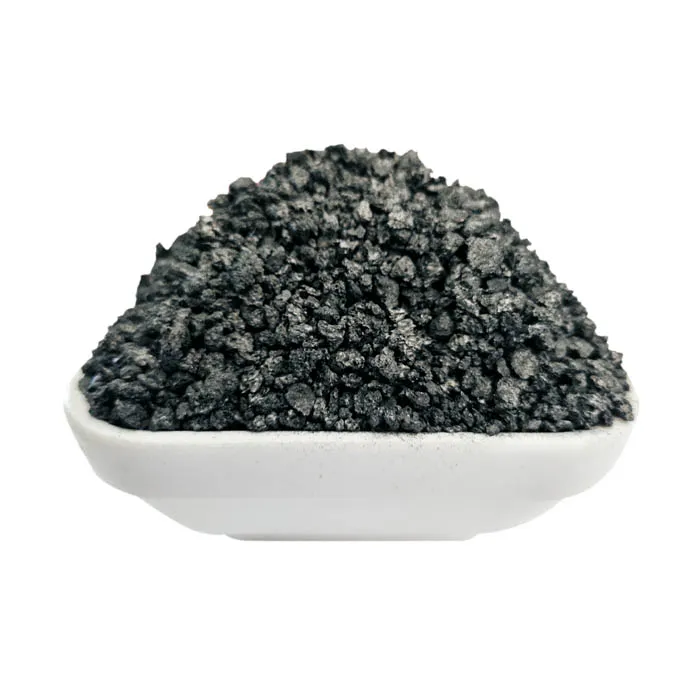abr. . 24, 2025 14:43 Tornar a la llista
Carbon Petroleum Coke vs. Other Carbon Sources
When it comes to industrial carbon sources, manufacturers have various options to choose from, including carbon petroleum coke, coal, and synthetic graphite. However, satisfactory petroleum coke stands out due to its high carbon content, cost-effectiveness, and wide applications. The petroleum coke market has seen increased demand as industries recognize its superior performance over other carbon materials. Understanding the advantages of petroleum coke carbon can help businesses optimize their production processes while maintaining quality and efficiency.

Why Carbon Petroleum Coke is a Preferred Choice
Manufacturers across different industries rely on carbon petroleum coke for its high purity and excellent performance. Compared to other carbon sources, it offers unique benefits that enhance industrial applications.
Higher Carbon Content for Maximum Efficiency
One of the main reasons industries prefer carbon petroleum coke is its high carbon content, typically exceeding 98%. This makes it a superior choice compared to coal or other carbon sources, ensuring better efficiency in metallurgy, steel production, and battery manufacturing.
Lower Impurities for Cleaner Production
Compared to coal and other raw carbon sources, petroleum coke carbon contains significantly lower sulfur and ash content. This reduces unwanted emissions and enhances the quality of the final product, making it an environmentally friendly choice for industries.
Cost-Effectiveness and Availability
The petroleum coke market offers competitive pricing compared to synthetic graphite and other high-purity carbon sources. Its affordability makes it a cost-effective solution for industries requiring large quantities of carbon for production.
Comparing Carbon Petroleum Coke to Coal and Synthetic Graphite
While coal and synthetic graphite are also used as carbon sources, they have distinct disadvantages compared to carbon petroleum coke. Understanding these differences can help manufacturers make informed decisions.
Carbon Petroleum Coke vs. Coal
- Carbon Content:Carbon petroleum coke has a significantly higher carbon percentage than coal, making it more efficient in industrial applications.
- Environmental Impact:Coal combustion releases more pollutants, whereas satisfactory petroleum coke burns cleaner with lower sulfur emissions.
- Energy Efficiency:Petroleum coke provides higher energy efficiency, reducing overall fuel consumption in manufacturing processes.
Carbon Petroleum Coke vs. Synthetic Graphite
- Cost:Graphite petroleum coke is more affordable compared to synthetic graphite, which requires extensive processing.
- Performance:While synthetic graphite has high purity, carbon petroleum coke offers a balanced mix of purity and cost-effectiveness, making it ideal for industrial use.
- Availability:The petroleum coke market ensures a stable supply, while synthetic graphite production is limited and more expensive.
Petroleum Coke Market Trends and Demand Growth
The petroleum coke market has seen significant growth due to rising demand from the steel, aluminum, and energy industries. As industries seek more efficient carbon sources, carbon petroleum coke remains a top choice.
Increasing Demand in Steel and Aluminum Production
The steel and aluminum industries rely heavily on petroleum coke carbon to improve product quality and production efficiency. As global construction and infrastructure projects grow, so does the demand for high-quality carbon materials.
Growth of Energy Storage Applications
With the rise of renewable energy and electric vehicles, the demand for graphite petroleum coke in battery production is increasing. This trend is expected to further drive the petroleum coke market forward.
Sustainable Carbon Solutions
Industries are focusing on sustainable and efficient carbon sources. The low emissions and high efficiency of satisfactory petroleum coke make it an attractive alternative to traditional carbon sources.
How to Choose the Right Petroleum Coke Supplier
Selecting a reliable carbon petroleum coke supplier ensures consistent quality and cost savings. Here are some key factors to consider when purchasing petroleum coke carbon:
Quality and Purity Standards
Ensure that the supplier offers high-purity carbon petroleum coke with minimal sulfur and ash content. This guarantees better performance and lower emissions.
Competitive Pricing and Market Stability
The petroleum coke market experiences price fluctuations. Partnering with a supplier that offers stable pricing helps industries manage production costs effectively.
Reliable Supply Chain and Bulk Availability
A consistent supply of satisfactory petroleum coke is essential for uninterrupted production. Choosing a supplier with a strong logistics network ensures timely deliveries.
Carbon Petroleum Coke vs. Other Carbon Sources: FAQs
Why is carbon petroleum coke better than coal?
Carbon petroleum coke has a higher carbon content, burns cleaner, and produces less pollution compared to coal.
Is petroleum coke carbon suitable for battery production?
Yes, graphite petroleum coke is widely used in lithium-ion battery manufacturing due to its high conductivity and purity.
How does the petroleum coke market impact pricing?
Supply-demand fluctuations, crude oil prices, and industrial demand influence graphite petroleum coke price trends.
Can petroleum coke be used in aluminum smelting?
Yes, the aluminum industry uses carbon petroleum coke in anode production, improving smelting efficiency.
Where can I buy high-quality carbon petroleum coke?
You can source satisfactory petroleum coke from trusted suppliers offering consistent quality and competitive pricing.
Upgrade your manufacturing with high-quality carbon petroleum coke! Contact us today for the best deals.
-
Strength with Premium Steel and Calcined Bauxite
NotíciesJul.28,2025
-
Revolutionize Construction Efficiency with Smart Industrial Materials
NotíciesJul.28,2025
-
Redefined with High-Grade Iron Powder Solutions
NotíciesJul.28,2025
-
Metallurgical Efficiency with Innovative Recarburisers and Covering Agents
NotíciesJul.28,2025
-
Industrial Efficiency Enhanced with High-Performance Recarburizer Solutions
NotíciesJul.28,2025
-
Boosted by Advanced Iron Powder and Carbon Additive Solutions
NotíciesJul.28,2025
